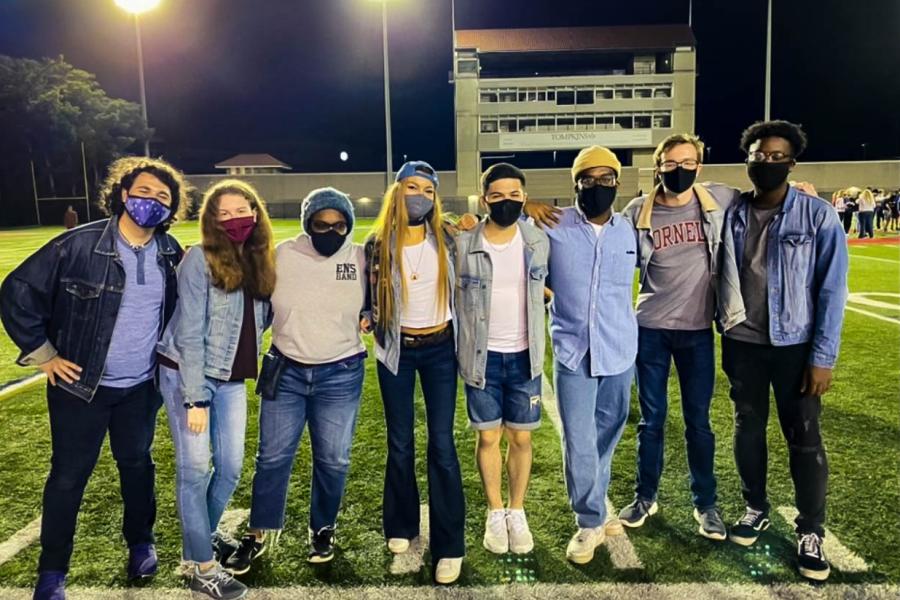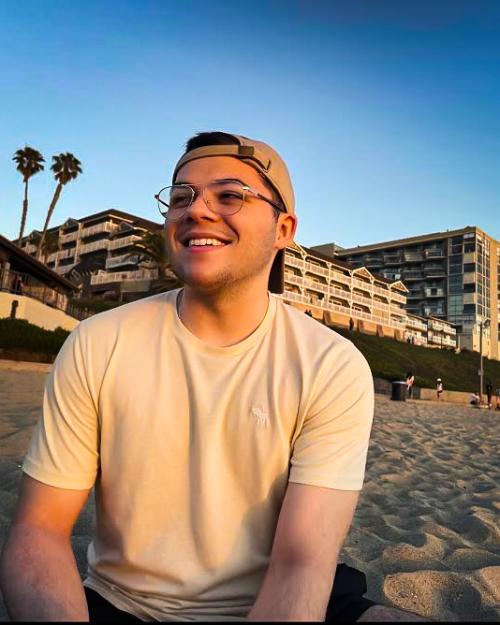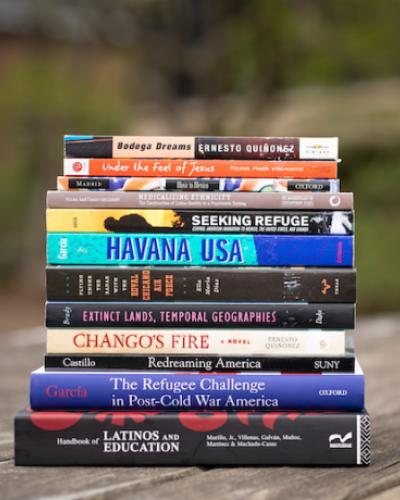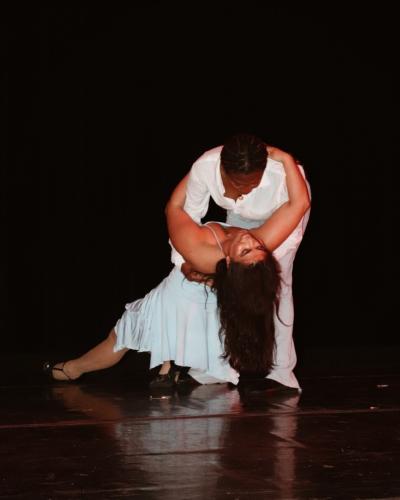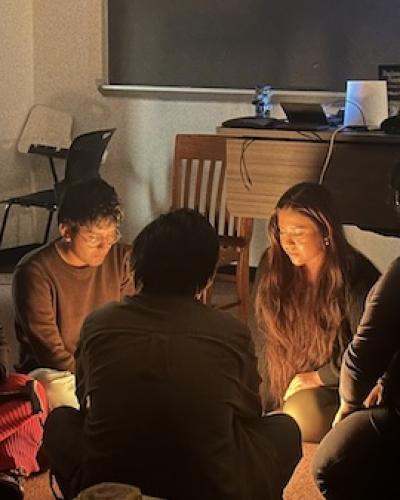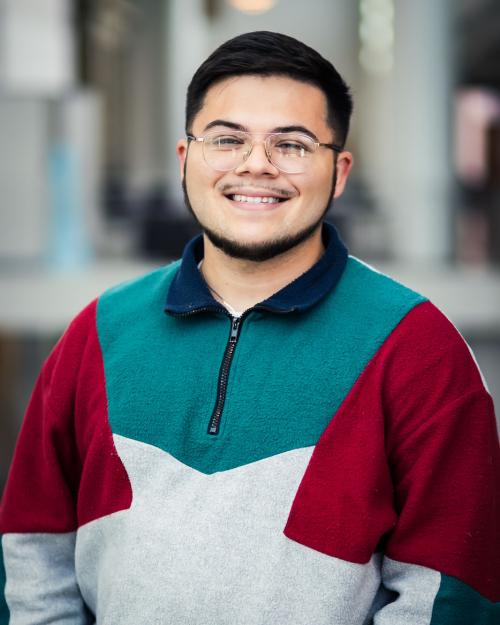Isaac Salazar
English
Kyle, Texas
What was your favorite class and why?
One of my favorite classes was Latinx Popular Culture Matters with Professor Ella Diaz. Although it was online, she was a classroom presence I’d never met before. With her faintly vocal inflection, almost Shakespearean manner, she was a proud Chicana that made me think about history and its cyclicality. She was au courant. It was my first class that discussed my heritage, from the performance art of Luis Alfaro to the activism and futurisms of the jotería. I have much to thank for Professor Diaz and her passion, her imperiously posed questions, and her pep talks during office hours.
What is your main extracurricular activity and why is it important to you?
My main extracurricular activity has been the Cornell Book Review. I am known to read a lot throughout the year, and I found this small, niche-oriented club to be the most fitting opportunity to get my voice published and put out into the world, or just in Ithaca. Built by a community of peers who share the same understanding that literature has the capacity to shape our world, this club has made me recognize the importance of book reviews: they help a book find an audience, reaching more people in more places than anything else. Now, a book review means so much more to me because it has shaped my newfound practice as a literary citizen. The Cornell Book Review has provided me with the space to write reviews on marginalized voices whose writing is necessary yet unacknowledged, such as Silvia Moreno-Garcia and Gabriela Garcia. In addition, the Cornell Book Review has allowed me the space to critique voices that are problematic, such as my first book review on Jeanine Cummins’ "American Dirt" and my thoughts about her misrepresentation of Mexico and Mexican culture. The step I took into writing a first book review that was radical is something I wouldn’t have been able to do without this club.
What Cornell memory do you treasure the most?
There are many Cornell memories that I will treasure: throwing myself in the first sight of snow outside of Low Rise 6, First Night with the Big Red Band Horns, calzones at Nasties, cycling at 8 a.m. for three days a week at Helen Newman Hall, attending several poetry readings at Buffalo Street Books and Klarman Hall, talking about Chicano and Chicana novels with Professor Mary Pat Brady, learning and growing with my Mellon Mays family at every weekly meeting, rolling burritos at Dos Amigos, eating sun puddles in the Olin stacks, etc.
What have you accomplished as a Cornell student that you are most proud of, either inside the classroom or otherwise?
I became a poet at Cornell. Initially, I took Cornell's Creative Writing Program for granted, but I ultimately found myself in my lines. In Introduction to Creative Writing, the graduate student instructor at the time, Carlos Gomez, brought up this idea of poetry as invention, that poetry has no official rules, but having some structure can help let your voice come out. It wasn’t long before projects of varying forms and modes started to manifest in my other classes. In one class, I responded to U.S.-Mexico border necropolitics with my Google Doc’s negative space. In another, I shared a personal ekphrasis on the memory of my grandfather through photographs I took of dilapidated barns throughout upstate New York. After my junior year, Professors Ishion Hutchinson and Valzhyna Mort fostered my poetic voice. What I accomplished throughout the latter half of my undergraduate year was a commitment to craft. But creative writing classes weren’t enough. My creative rise found the Nuyorican Poets Cafe’s open mic nights and Grubstreet’s poetry workshops. My burgeoning voice established a poetry community within and outside of Cornell. By committing to poetry, my poems were nominated for a Pushcart, won a prize in the Department of English, and got me into M.F.A. programs. However, what I value most from my creative writing journey at Cornell is that it has grounded me in a sense of place and constantly reminded me that there is a space for my voice that denies permissions or limits.
What are your plans for next year?
In the fall I will be attending Rice University to pursue my Ph.D. in English, where I will continue my interests in Mexican American literature and cultural production, the environmental humanities and the intersections at which they meet.

